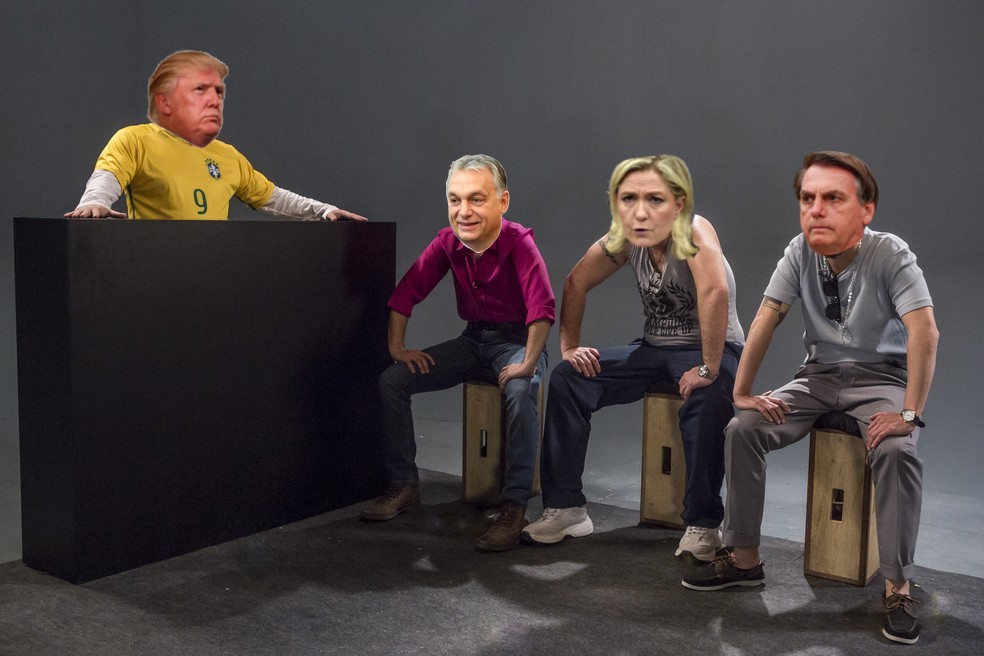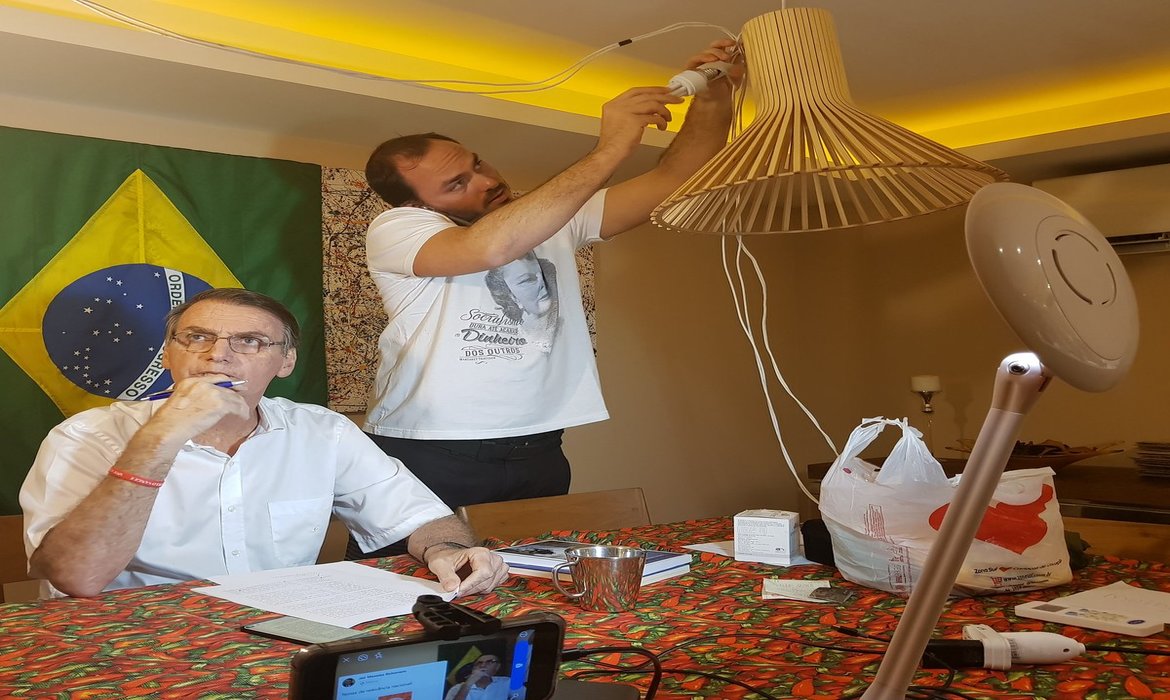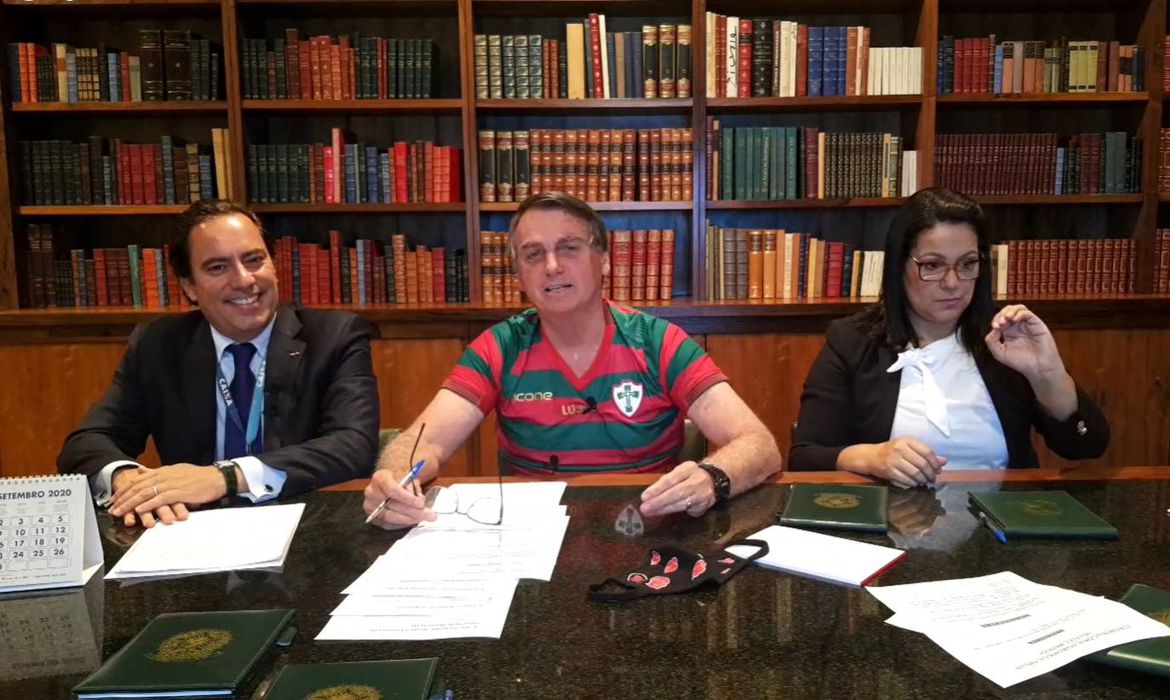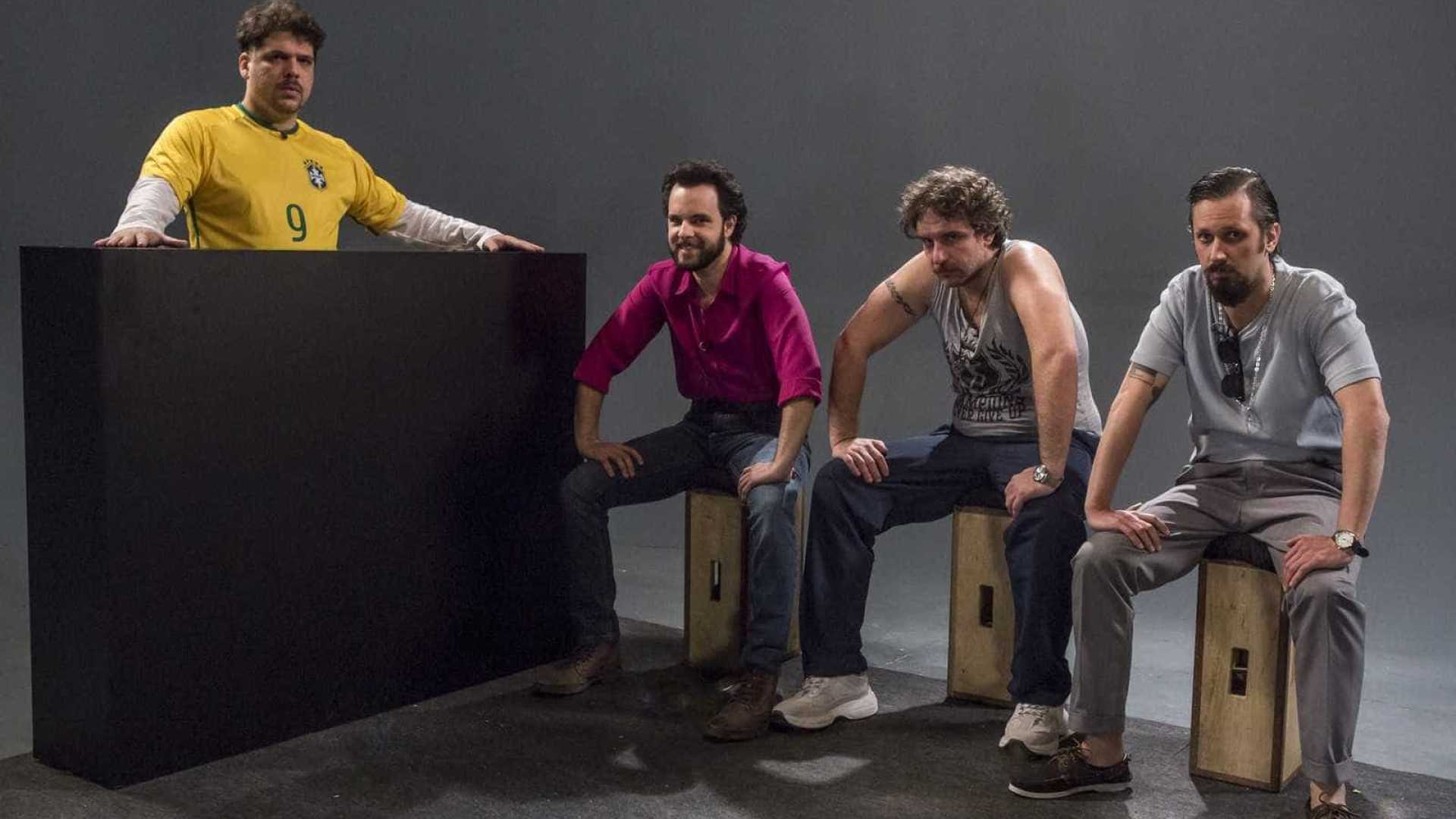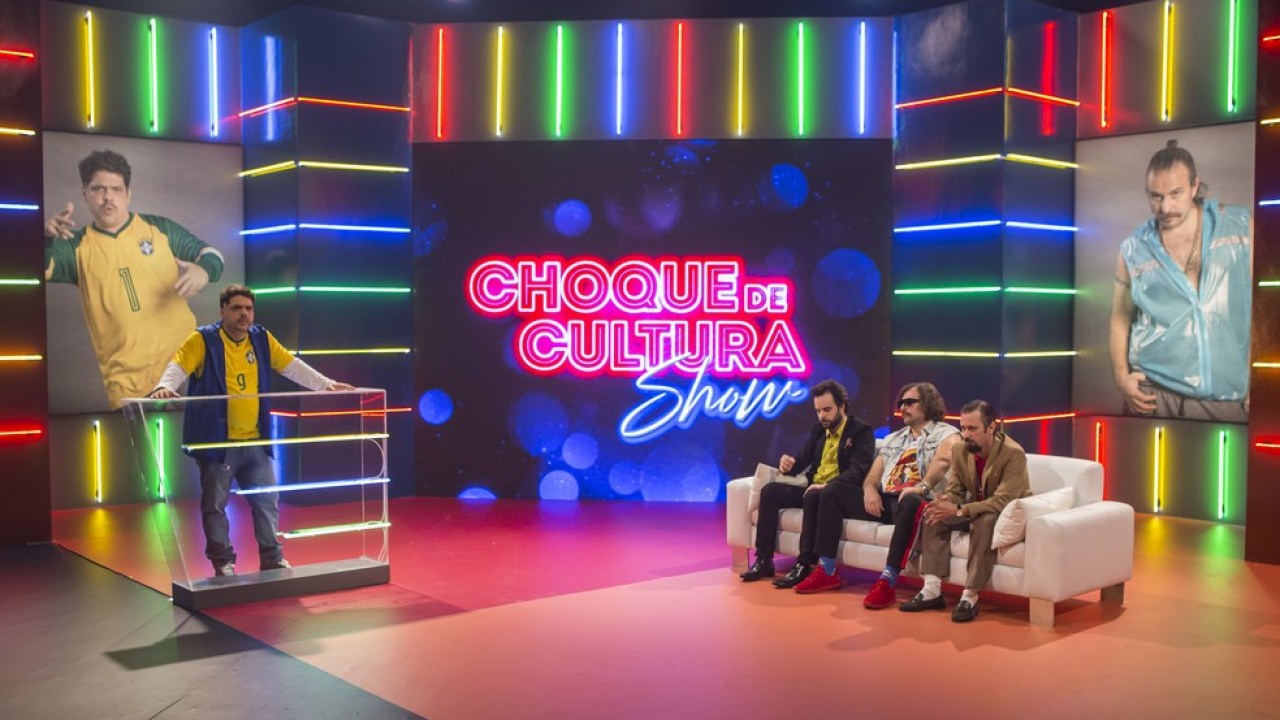Donaldinho from USA and BolsonaRenan: Why the brazilian show Choque de Cultura is a lesson about the success of the big names of the populist "alternative representation"
The difficult year of 2020 comes to an end and brings with it two events with great expectations for entertainment and politics in Brazil. In entertainment, a new season of the comedy program Choque de Cultura begins, a Brazilian internet phenomenon in recent years, with a peculiar humor proposal different from that found in traditional channels. In politics, the defeat of Donald Trump in the US election indicates bad news for a group of politicians who have opted for a populist style - among them, the brazilian president Jair Bolsonaro -, marked by polarization, strong attacks on traditional elites, for their conservatism and authoritarianism. However, everything indicates that despite Trump's defeat, the populist wave will stand firm.
But what do these two events have in common? Many things. These artists may have been some of the people who best translated one of the keys to populist success: the way their discourse, often regarded as non sense, finds an echo in ordinary people. Or vice versa: precisely because these speeches are so familiar, they are so successful. If you are not aware how close the ideas of a populist are to the discourse of the most famous alternative transport drivers in Brazil, this article will show you.
One of the main approaches to studying populism highlights how these leaders tend to behave in a more rude and natural way, with popular words and expressions that bring them closer to the common voter. It is reflected in a part of society that identifies culturally with this type of behavior and becomes a source of support and dissemination. In an environment of widespread dissatisfaction and discredit, these strategies can be very effective.
The aesthetics and the logic of the absurd
Choque de Cultura is a comedy show in which four drivers of alternative transport discuss movie trailers in an improvised and amateur way. The program has as a fundamental characteristic - and that at first causes some strangeness, as well as an unexpected familiarity - the fact that the dialogues are chaotic and with dubious logic, which makes the discussions go down unexpected paths until they lead to absurd conclusions. However, comments are always made in the most natural way possible, regardless of severity.
The following excerpt, in addition to being one of my favorites, is also an emblematic example of the (anti) logic that prevails throughout the series. Mixing conspiracy theories with real figures, with a simple and direct speech, the characters build narratives based on unsubstantiated speculation, but with apparent and fallacious logic. The selected passage begins with Maurílio saying that the Marvel character, Thor, must fight with a saint to be fair, since he is a God, ending with Rogerinho warning that "one must respect the Pope". On the way to this conclusion, pearls like "The Pope does not die", "The Pope casts spells" and "The Pope today is a franchise like Bozo" (a famous Brazilian clown from the 80s and 90s).
To understand how these speeches approach the strategy of populist leaders, let's take the example of the president of Brazil, Jair Bolsonaro. Bolsonaro is, in fact, a digital influencer, almost a political youtuber . Since before his election, he has been making lives and constant appearances on social media, cultivating direct contact with his voters.
It is curious to see how, from the beginning and following the same transformations, even the aesthetics of his lives are close to Choque de Cultura. Before being elected, they were rudimentary, with simple, makeshift-looking objects [1], the same characteristics as the show's first season. After the election, Bolsonaro's lives gained a more robust structure, with an elegant table, a collection of old books behind and a sign interpreter. The second season of Choque, recorded at the Rede Globo studios, also saw a considerable increase in structure, although it was deliberately invested in extravagances of dubious taste. If they had the same presidential advisory as Bolsonaro, perhaps the drivers would have ruled out the extravagances. And vice versa.
But it is not only aesthetics that brings Bolsonaro closer to the "pilots." They both have very similar attitudes and points of view regarding the various problems facing their country.
One of them is environment. Widely criticized for his lack of zeal and responsibility for the environment, Bolsonaro has provided questionable "solutions" to climate change, to say the least. According to him, "pooping every other day helps with the environmental issue". His Minister of the Environment, Tereza Cristina, in tune with the employer (and with the show, as we will see below), suggests the creation of livestock as a way to avoid burns in the wetland, a solution known as "the firefighter bull"[2]. So, for her, it is necessary to deforest the native forest. Therefore, her solution is to deforest to avoid burns.
They may seem strange suggestions, but not to our alternate transportation drivers. They are in tune with their perception of what is good for the environment, as you can see in the following excerpt.
A very sensitive issue for Choque de Cultura's drivers is the driver's license. Always involved in crime and difficulties with justice, as we can see from their stories of "car races" and irregularities in traffic, they are very critical to the brazilian license score system. And Bolsonaro is very attentive to these demands. In 2019, the president personally delivered a law that sought to make the scores regime more flexible, increasing the amount necessary to suspend the license to 40. The law was sanctioned a year later, in October 2020. And Bolsonaro goes further: he opposes driving lessons in driving schools, mobile radars on federal highways and deeply criticizes what he calls the "fine industry"
The common outrage regarding traffic inspection doesn't stop there. The drivers are always ready to criticize it, especially with regard to speed limits, and are staunch opponents of what they call "fine industry". Relying on this demand, Bolsonaro last year promised to end mobile radars in the country, also criticizing the fine industry. Justice, however, has suspended its decision . But he obtained at least the ban on hidden radars. A step towards the ideas of the show.
But it is the enforcement of justice as a whole, and not just traffic law, that appears to be a problem. The drivers of Choque de Cultura always complain about the difficulties they face in relation to the laws. What seems to be the same case with Bolsonaro: he has also been experiencing certain difficulties and presenting complaints, such as the "meddling" of justice in his affairs.
While the pilots affirmed that "justice must end", Bolsonaro tried to take steps to implement their ideas It ended up failing.
Lastly, their resemblance is not limited to their personal relationships, but also in the way they relate to foreign powers.
Curiously, just as Renan threatened not to recognize a Game of Thrones ending that he was not interested in, Bolsonaro also hesitated to acknowledge the result of the 2020 US election , which was not what he expected. With new frustration, he ended up having to admit it.
The tune in all of this is undoubtedly too great to be just coincidences.
Choque de Cultura and vote for Bolsonaro
It is clear that not all Bolsonaro voters have these same conceptions. Several events led to the result of the 2018 elections in Brazil, among them the discredit of the political class, a violent economic crisis, the lawfare that happened in recent years, to name a few.
What these examples show is that perhaps these ideas are not as unusual and marginalized as some might think. Dressed in comic language, they become more digestible, drawing the attention of brazilians to the dissent and potential of a populist conception that has been gaining traction throughout the world. Even if a minority, people enthusiastic about these positions become promoters of these politicians - and, consequently, of these ideas -, conquering the disappointed and unwary. In an environment conducive to this, this process tends to have grave consequences, both institutional and human, as the world today attests. And mainly Brazil.
And if you still think it's an exaggeration, that no one would identify oneself with the show's ideas except as a critic, know you're wrong. The artists themselves not only tell us otherwise, but they even make a good estimate of the number of people who does: 1 in 10. This is said by Leandro Ramos, Julinho's interpreter. This is the number of fans who approach them saying that they identify with the characters, in a not very adequate way ...
Perhaps it is because of situations like this that the name of the show is "'Choque' de Cultura ".
[1]: Today we know that it wasn't really improvised.
[2]: Which is false, according to experts.
